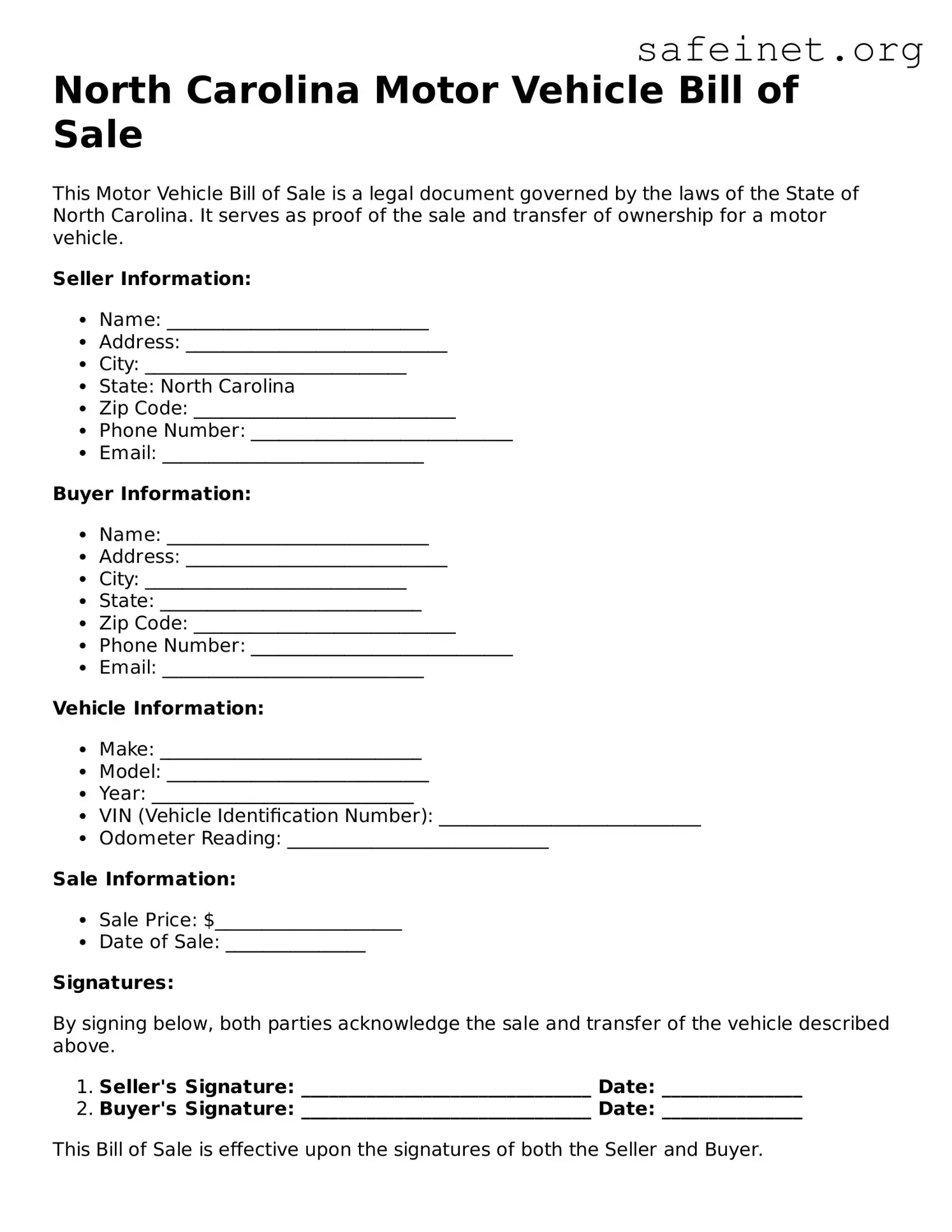The Motor Vehicle Bill of Sale in North Carolina serves as a legal document that records the transfer of ownership from the seller to the buyer for a vehicle. It includes critical information about the vehicle, the buyer, and the seller, helping to establish a clear and documented transaction. This form is essential for both parties to protect their interests and confirm the sale details.
What information is included in the North Carolina Motor Vehicle Bill of Sale?
This form typically includes the names and addresses of both the buyer and seller, the vehicle’s make, model, and year, the Vehicle Identification Number (VIN), the sale price, and the date of the sale. Additionally, it may contain sections for the buyer's and seller’s signatures, which affirm the accuracy of the information provided.
How is a Bill of Sale completed?
To complete a Bill of Sale, both the buyer and seller should fill in their respective information accurately. Ensure all vehicle details, such as the VIN and sale price, are correctly entered. Once the form is filled out, both parties must sign and date it. Keep copies for personal records, as both the buyer and seller may need to reference the document later.
What should I do after completing the Bill of Sale?
After signing the document, you should promptly take it to the North Carolina Department of Motor Vehicles (DMV) for processing. The bill of sale proves the vehicle ownership transfer and is important to register the vehicle in your name. Remember to also notify your insurance company of the new vehicle purchase, as coverage will need to be updated.
Can I use a Bill of Sale for a vehicle that has a loan or lien?
If the vehicle has an outstanding loan or lien, it is essential to resolve this matter before transferring ownership. Often, the lender must release the lien to clear the title. Once cleared, a Bill of Sale can be used to document the sale. Always check with the lender for specific requirements related to the transfer of ownership.
What if there are problems after the sale?
If any issues arise post-sale, such as mechanical problems or disputes over the agreed price, the Bill of Sale serves as a reference point for what was agreed upon between the buyer and seller. Keep documentation of the sale and any related communications. If necessary, you could seek resolution through local consumer protection agencies or, depending on the situation, legal advice may be warranted.
